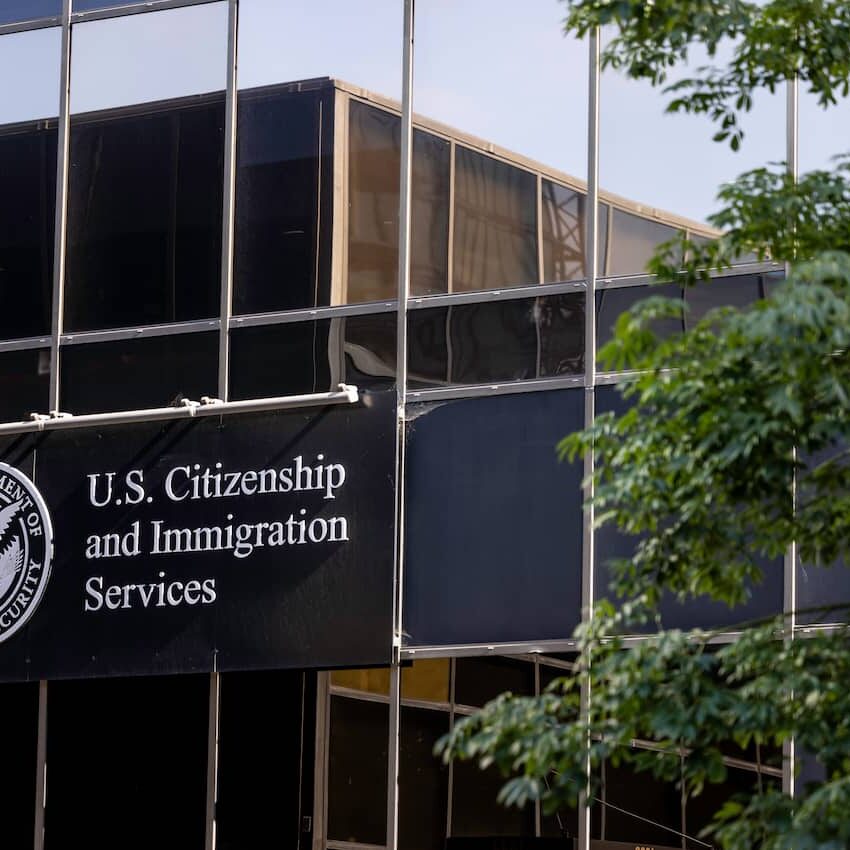In the United States, USCIS states they may grant parole in place on a case-by-case basis for active-duty members of the U.S. armed forces, individuals in the Selected Reserve of the Ready Reserve, or individuals who previously served on active duty or in the Selected Reserve of the Ready Reserve and not dishonorably discharged.
At Goldstein Immigration Lawyers, our immigration lawyers are strong supporters of veterans and military service members. PIP is a strategy that we use to keep military families together.

Can I Get a Green Card Through Pip if I Entered the U.S. Illegally, i.e., Without Inspection?
Parole in Place is an exception to immigration law because it allows you to apply for green cards in the U.S., through the I-485 adjustment of status process, even if you entered the U.S. without inspection. Before Parole in Place, if you were to enter the U.S. without inspection, you would generally have to return to your home country and seek an I-601 or I-601A waiver for unlawful presence even if you have a military family member. But by removing the requirement of legal entry into the U.S., Parole in Place allows military families to remain together during the I-485 adjustment of status process.
Who Is Eligible for Parole in Place?
To qualify for PIP, you must be the spouse, child (under the age of 21), or parent of either:
- An Active Duty member of the U.S. Armed Forces;
- A current member of the Selected Reserve of the Ready Reserve; or
- A veteran, i.e., someone who has previously served in the U.S. Armed Forces or the Selected Reserve of the Ready Reserve.
Parole in Place Application Process with USCIS
To get a green card through Parole in Place, you must follow 2 steps: first, you obtain Parole in Place and, second, based on the approval of PIP, you may apply for adjustment of status. To apply for Parole In Place, you must submit the following to USCIS:
- Completed Form I-131, Application for Travel Document
- Evidence of the family relationship to the military personnel (such as a copy of a birth or marriage certificate)
- Proof that the family member is either a veteran or current active duty military. For example, you can provide a photocopy of the front and back of their military identification card (DD Form 1173).
- 2 passport-style photographs, and
- Any proof of additional favorable discretionary factors.
USCIS schedules an interview for Parole in Place approval. The USCIS Los Angeles Field Office issues Parole in Place approvals to applicants and conducts an interview in Room 1001. Upon approval, Parole in Place applicants receives approval notice for the I-131 and an I-94, Arrival/Departure Record.
How Do You Get a Green Card After Parole in Place Is Approved?
If your application for Parole in Place is approved, you will have a valid I-94 and will then be deemed “inspected and admitted or paroled” into the United States. Thus, the I-94 effectively makes you eligible to adjust your status under INA § 245(a). This means that you will be able to file a family-based I-485 and obtain your permanent residence without leaving the U.S.
Parole in Place applicants for adjustment of status must comply with all basic requirements as any I-485 applicant would, including:
- I-130, Petition for Alien Relative
- I-485, Application for Adjustment of Status
- I-864, Affidavit of Support
- G-325A, Biographical Information (for both U.S. citizen-petitioner and Parole-in-Place applicant)
- I-693, Medical Exam
Parole in Place applicants filing for green cards also often file for interim benefits, i.e., Work Permits (Employment Authorization Documents, I-765), as well as permission to travel internationally by means of a Travel Document (Form I-131).
Do You Have to Be 21 Years Old to File a Parole in Place Case for Your Parents?
If you are not yet 21 and have enlisted in the U.S. armed forces, then the good news is that your undocumented parents are eligible to apply for Parole in Place immediately, even before you turn 21. They apply for PIP by filing Form I-131 with the Los Angeles Field Office (or whichever USCIS office has jurisdiction). Once Parole in Place is approved, your parents will receive the I-94 cards. You can file an immigrant visa petition for them but you will not be able to do so until you turn 21.
“Is It Possible to Get Parole-In-Place if I Have With an Outstanding Order of Removal (Deportation)?”
No. USCIS will deny your request for PIP if you have a final order of removal or deportation. My understanding is that, in this situation, you will have to reopen the Immigration Court deportation proceeding and get rid of the order of removal in order to qualify for Parole in Place. In some jurisdictions, if you have an order of deportation, you must file your request for PIP directly with ICE.
How Long Does My Family Member Have to Be in the Armed Forces Before I Am Eligible for Parole in Place?
Based on USCIS Policy Manual, there appears to be no time requirement before the spouse, children, or parent of the U.S. Armed Forces Member or Selected Reserve of the Ready Reserve (or former member of either) becomes eligible for PIP. However, the length of time that the member has served in the military could be a discretionary factor that USCIS weighs in considering whether to grant Parole In Place.
Los Angeles Immigration Lawyers Can Help
Are you in the Los Angeles-area and interested in applying for Parole in Place? Or are you just curious and would like to speak with a PIP lawyer and whether it’s the best immigration option for you and your family? With extensive experience in complex immigration cases, Goldstein Immigration Lawyerscan help advise you on Parole in Place and other immigration options. Please answer a few questions here and see if you qualify for a free case evaluation.
2017 Concerns for Cancellation of Parole in Place
In 2017, soon after taking office, President Trump issued an Executive Order on immigration, which stated that Parole in Place programs would be eliminated; instead, Parole in Place cases would be considered on a case-by-case basis. This pronouncement was interpreted to mean that military parole in place program established in 2013 would be ended. The San Diego Tribune, for instance, published this opinion piece, imploring the Trump Administration to continue Military Parole in Place.
Immigration lawyers in the Los Angeles-area, as of March 2017, continue to report that the USCIS Los Angeles District Office is still approving requests for Military Parole in Place, despite Trump’s Executive Order.
Imagine volunteering to risk your life and defend the country you call home. You’re out in a combat zone and all of a sudden you get a frantic call that your spouse and children are being deported back to a country that they probably haven’t seen in years.
This is the reality that thousands of Americans might face now that the Trump Administration is ending Parole in Place. The program was initially created to provide immigration support to the immediate family members of those who are actively serving in the military. If you served in the military and your spouse or child was undocumented, they would be protected under Parole in Place and be given a path to permanent residency.
This program that was created to keep military families together is now coming to an end. Rumors suggest that the program will be completely shut down within a month or so. There’s a lot of speculation in the air as to how much longer Parole in Place will exist, but one thing is for sure: now’s the time to apply if you’re eligible.
As of now, it is speculated that once the program ends, those applying for Parole in Place will be considered on a case by case basis. This means that there will no longer be an organized system for processing applications, or formal assistance to the families of active-duty members of the military. Instead, applications will be left at the hands of USCIS and potentially lost in the messy web that is bureaucracy.
Apply Now, While You Can
If you or any of your loved ones are eligible for Parole in Place, now is the time to apply. The best way to get your application in on-time is with the help of a skilled immigration attorney. Please answer a few questions and see if you qualify for a free case evaluation.
